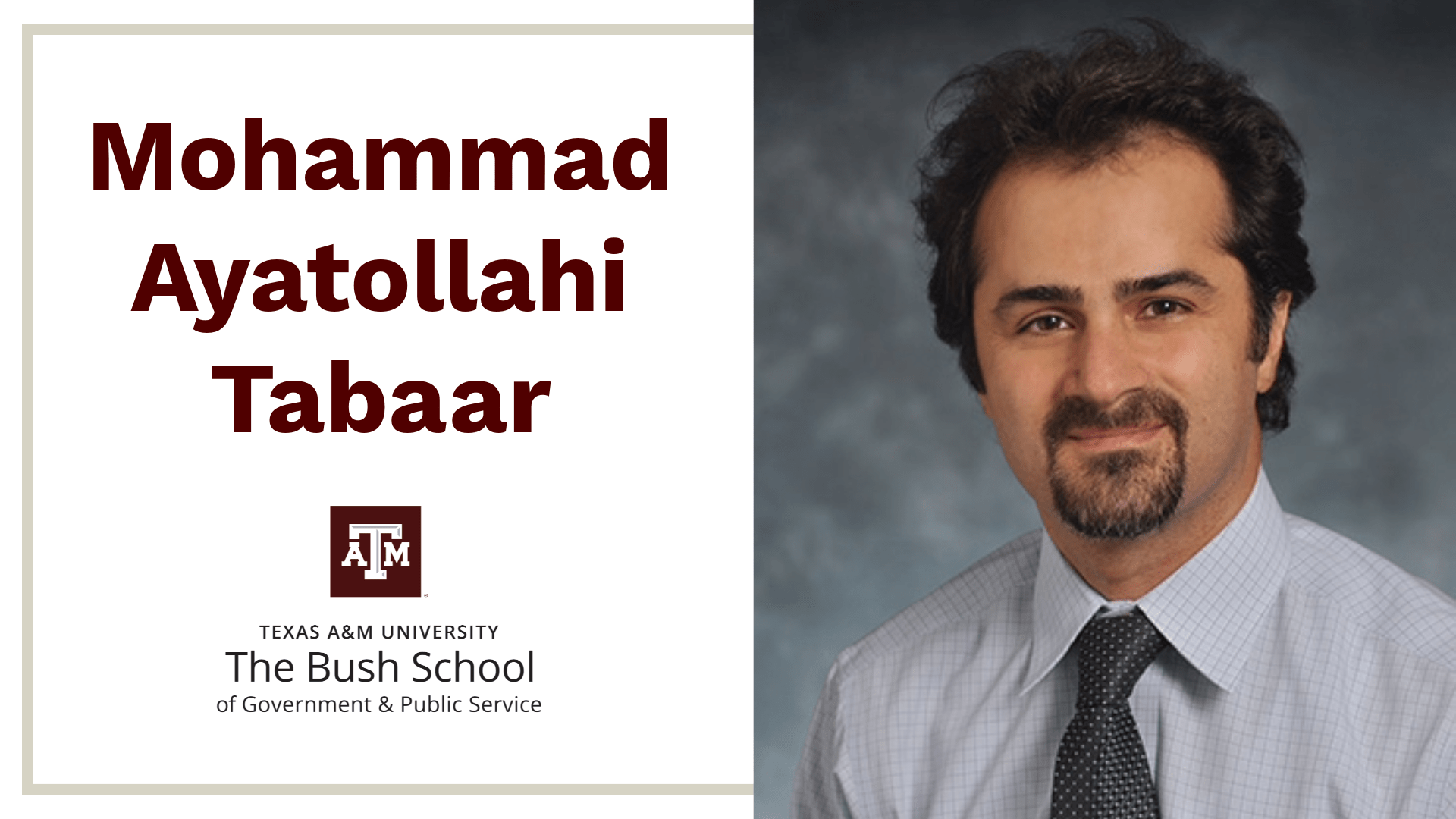
The Islamic Republic’s leaders do not believe they face defeat, contrary to what many opponents think, writes Mohammad Ayatollahi Tabaar, Ph.D., an expert on international security and Middle East politics with The Bush School of Government and Public Service
The popular consensus that Iran is weaker than it has been in decades, and that it may have to make significant concessions to its opponents, is not shared by the country’s leaders, Bush School professor Mohammad Ayatollahi Tabaar, Ph.D., writes in a recent essay in Foreign Affairs.
Iranian leaders consider a series of recent setbacks as merely that – setbacks – “not signs of defeat,” according to Tabaar. They likewise believe that “a populace fed up with authoritarian, theocratic governance” can be won over “by limited internal concessions,” ultimately resulting in domestic stability that Tehran believes will enable the country “to resist pressure from abroad.”
Iranian allies Hamas and Hezbollah may have suffered defeats to Israel, former Syrian president Bashar al-Assad’s government may have collapsed, President Trump may revive policies that hobbled the Iranian economy in 2018 and domestic unrest remains, but those difficulties “should not be understood as harbingers of a grand reopening to the West,” Tabaar writes.
Foreign Affairs is one of the most influential publications in the field. Tabaar’s article is titled, “Can Iran Save Itself?”
